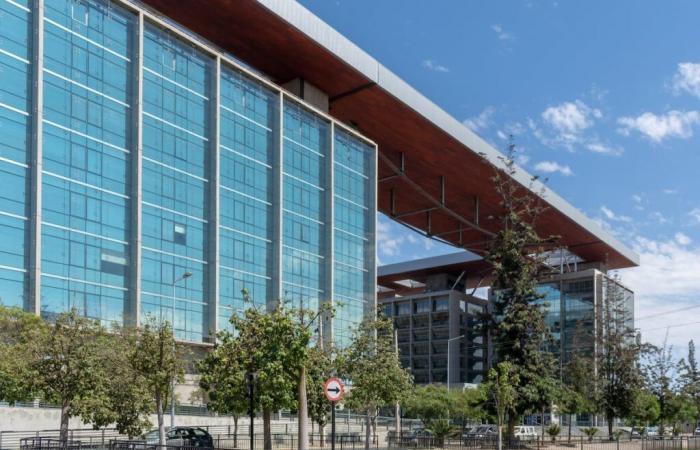In a democracy like Chilean, the greatest threats to justice do not usually have their origin in authoritarian efforts. Sometimes they emerge from much more subtle abuses, disguised as apparently legal procedures, such as the leaks of personal conversations obtained under the pretext of a criminal investigation. When prosecutors decide – each time more frequently and reckless – that publicly exposing authorities is more important than respecting the procedural guarantees and limits, the result is not greater accountability, but the slow corrosion of the constitutional values that justice should precautionary.
Unfortunately, unauthorized leaks of private conversations have become increasingly visible than the crimes investigated. The exhibition of personal opinions of the president of the Chamber of Deputies until March 17, the day he resigned, and a former mayor; Of family conversations of the head of presidential advisors with his mother, and details about the intimate life of a deputy, they are illustrative examples of how the Public Ministry has diverted the use of investigative tools towards purposes that have little to do with the persecution of crimes. Instead of limiting interceptions to relevant facts and submitting them to the scrutiny of judges, prosecutors have allowed them to become inputs for the media show.
What should be reserved evidence ended in press holders, in a show that despises due process and erodes the very legitimacy of justice. Each of these leaks has violated constitutional rights, has questioned the impartiality of these investigations and has undermined confidence in a judicial system increasingly in question. Listening and expert opinions, designed to protect public interest and sanction crimes, have ended up being used as scanning pieces to feed the public controversy. This abusive and illegal act of the Public Ministry inevitably converts the sober machinery of justice into a strident theater of political war, what the Anglo -Saxons call lawfare.
Other countries offer us lessons about the danger of these practices, whose finals are never happy. In Brazil, the revelations of the call Jet They presented how judges and prosecutors colluded to selectively filter information that harmed political adversaries, undermining the credibility of a necessary anti -corruption crusade. In France, the Affaire Clearstream He demonstrated how leaks that turned out to be false could destroy political careers and destabilize judicial institutions. In Poland, the tapes of WaitergateThey dramatically altered the course of national elections and gave way to serious democratic erosion.
In all these cases, the employer is disturbingly similar: prosecutors and investigators justified their actions legitimately claiming the existence of crimes starring political authorities. But by filtering information selectively – often sensationalist or simply embarrassing – they ended up crossing the faint line that separates a legitimate criminal investigation from political sabotage and, with that, they poisoned any possible accountability, in addition to compromising confidence in public institutions that should arbitrate faults to public integrity.
The risks facing Chilean criminal justice today are not very different. Each unauthorized filtration of private information that becomes a media show, is eroding the independence, impartiality and equanimity of the justice system. Convert listening or investigative findings into public humiliations – without process, without relevance to the crimes investigated, without containment of authorities endowed with extremely intrusive powers – it is not simply an injustice. It is political sabotage disguised as transparency, which can corrode the basis of a constitutional democracy until only the trial is left through press holders.
Prosecutors are entrusted with extraordinary powers such as monitoring, investigating and accusing. You can listen to our calls, read our messages, pave our houses, access our secrets. Therefore, such powers bring an equally extraordinary responsibility: to ensure that justice is blind, impartial and contained. Hence, this power must be exercised with a deep reverence due to containment, not with thirst for revenge or hunger for applause.
On the latter, we should never lose sight of the fact that the genuine demonstration of the ethics of prosecutors and democratic health of a society is not in how justice treats its most exemplary citizens, but how due process is guaranteed for all, even for those who are more difficult for us to defend. It is easy to raise the voice for the rights of those of us who admire or with whom we commune politically. The truly important thing is to protect the procedural guarantees of whom we disagree or even cause us contempt. As one of the most respected English judges of our time warned, the right to a fair trial is not a prize that wins a privilege reserved for virtuous. It is an absolute right, the pillar on which every free society is supported that aspires to be called just and respectful of the rule of law.
The democracies and justice that are given in them do not survive because they are perfect, but because they know how to be exercised with containment. And there is no place where this containment is more necessary than in the hands of those who have the power to destroy reputations, careers and public trust. Criminal justice was not conceived as a weapon to be held against political enemies. It is a shield, destined to protect equally to guilty, innocent and all that remain in the middle, including – and above all – those who tempt us most harm. A democracy that forgets this truth will soon discover that he is less virtuous and many more sinners in power.






